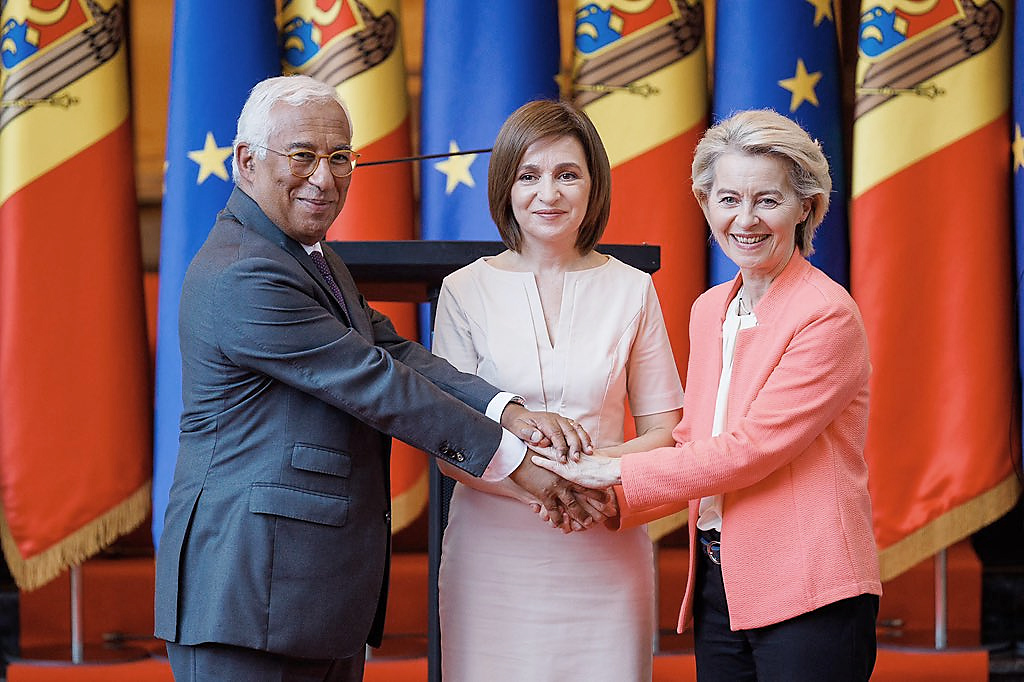EU Leans Toward Keeping Ukraine, Moldova Aligned in Membership Talks

European Union diplomats are signaling that Kyiv and Chișinău may not be separated in the upcoming negotiations on EU accession, despite earlier speculation that Moldova could advance on its own.
The Gaze reports this, referring to Politico.
The shift comes ahead of a high-profile visit by the leaders of Germany, France, and Poland to Chișinău on Wednesday, August 27.
German Chancellor Friedrich Merz, French President Emmanuel Macron, and Polish Prime Minister Donald Tusk are expected to use their visit to reassure Moldovan voters, just weeks before parliamentary elections, that their country’s European future is both real and irreversible.
“Their presence sends a powerful message: Moldova is not alone. Its European path is real, irreversible, and backed by all major political families in the EU,” said Siegfried Mureșan, a Romanian member of the European Parliament who chairs the EU delegation to Moldova.
Still, the timeline for Moldova’s EU membership remains unsettled. Earlier this summer, Brussels considered accelerating Moldova’s accession process by opening its first negotiation cluster ahead of the elections. However, some diplomats cautioned that doing so could appear politically motivated and risk undermining credibility.
A French official acknowledged that both Ukraine and Moldova have compelling cases for membership. “There are merits for both the candidacies of Ukraine and Moldova, in the context of what Ukraine is going through. The decisions in Brussels have to be taken unanimously and we need to operate within these … principles,” the official said, noting that outcomes could be decided “in the coming days or weeks.”
Other diplomats expressed hope that the deadlock over Ukraine’s bid could also be broken in the months ahead, especially amid growing pressure on Budapest to soften its opposition.
As The Gaze reported earlier, Moldovan President Maia Sandu believes that Russia may provoke an even greater crisis in Transnistria in order to destabilize the situation in Moldova ahead of this fall's parliamentary elections and influence the voting on the left bank of the Dniester.